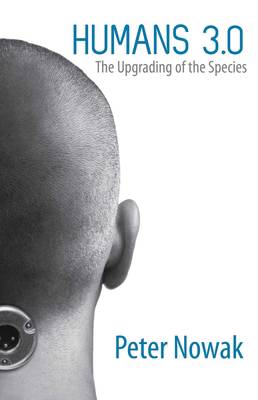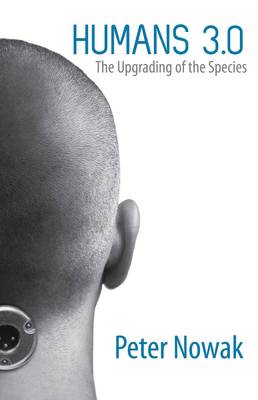
Bedankt voor het vertrouwen het afgelopen jaar! Om jou te bedanken bieden we GRATIS verzending (in België) aan op alles gedurende de hele maand januari.
- Afhalen na 1 uur in een winkel met voorraad
- In januari gratis thuislevering in België
- Ruim aanbod met 7 miljoen producten
Bedankt voor het vertrouwen het afgelopen jaar! Om jou te bedanken bieden we GRATIS verzending (in België) aan op alles gedurende de hele maand januari.
- Afhalen na 1 uur in een winkel met voorraad
- In januari gratis thuislevering in België
- Ruim aanbod met 7 miljoen producten
Zoeken
€ 30,95
+ 61 punten
Uitvoering
Omschrijving
Our species is entering a new era. Millions of years ago, we created tools to change our environment. Caves became huts, fires became ovens, and clubs became swords. Collectively these tools became technology, and the pace of innovation accelerated. Now we're applying the latest advancements to our own biology, and technology is becoming part of the process. But is that a good thing? Not if media scare pieces about government spying, limitless automation, and electronic addictions are to be believed. But veteran journalist and best-selling author Peter Nowak looks at what it means to be human - from the relationships we form and the beliefs we hold to the jobs we do and the objects we create - and measures the impact that those innovations have had and will have in the future. He shows not only how advancements in robotics, nanotechnology, neurology, and genetics are propelling us into a new epoch, but how they're improving us as a species. Nowak has compiled the data and travelled the world to speak to experts. Focusing on the effects of technology rather than just its comparatively minor side effects, he finds a world that is rapidly equalizing, globalizing, and co-operating.
Specificaties
Betrokkenen
- Auteur(s):
- Uitgeverij:
Inhoud
- Aantal bladzijden:
- 224
- Taal:
- Engels
Eigenschappen
- Productcode (EAN):
- 9780762787005
- Verschijningsdatum:
- 6/01/2015
- Uitvoering:
- Paperback
- Formaat:
- Trade paperback (VS)
- Afmetingen:
- 142 mm x 216 mm
- Gewicht:
- 226 g

Alleen bij Standaard Boekhandel
+ 61 punten op je klantenkaart van Standaard Boekhandel
Beoordelingen
We publiceren alleen reviews die voldoen aan de voorwaarden voor reviews. Bekijk onze voorwaarden voor reviews.









